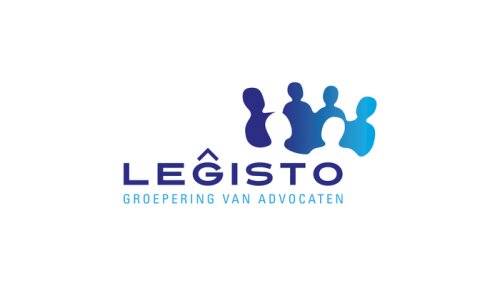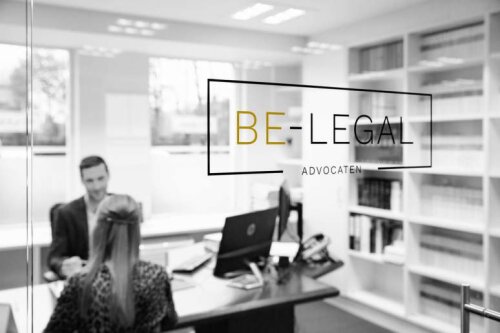Best Renewable & Alternative Energy Lawyers in Mol
Share your needs with us, get contacted by law firms.
Free. Takes 2 min.
List of the best lawyers in Mol, Belgium
About Renewable & Alternative Energy Law in Mol, Belgium
Renewable and alternative energy law in Mol, Belgium focuses on the legal framework regulating the production, distribution, and use of energy from sustainable sources such as solar, wind, hydro, and biomass. With a strong emphasis on sustainability, Mol actively supports the transition from fossil fuels to greener energy solutions. Local authorities and businesses in Mol are participating in renewable energy projects, including solar parks, energy cooperatives, and research into innovative energy technologies. Compliance with Belgian and European Union law is essential in this field, impacting property rights, environmental protection, incentives, and permits for renewable energy installations.
Why You May Need a Lawyer
Navigating the legal landscape of renewable and alternative energy in Mol can be complex. You might need a lawyer if you are:
- Planning to install solar panels or other renewable energy systems on your property
- Entering into power purchase agreements with energy providers or cooperatives
- Facing disputes over land use or energy installations in your neighborhood
- Applying for government grants, subsidies, or tax benefits for green energy projects
- Dealing with regulatory compliance, such as permits and environmental impact assessments
- Engaged in research or commercial production of renewable or alternative energy
- Addressing issues related to connection, grid access, or surplus energy distribution
- Handling investments, mergers, or acquisitions in the renewable energy sector
- Responding to changes in local or EU regulatory requirements
A lawyer can advise you every step of the way, helping you understand your rights, obligations, and the best course of action.
Local Laws Overview
Mol is subject to Belgian national law, Flemish regional policies, and European Union directives on renewable and alternative energy. The following legal aspects are most relevant:
- Permits and Authorizations: Building and operating renewable energy systems usually require permits from local municipalities. There are specific zoning and environmental rules governing installations, especially for wind turbines and large solar projects.
- Subsidies and Support Schemes: The Flemish region, including Mol, offers incentives like green certificates and grants for renewable energy projects. Rules for application and eligibility change periodically.
- Grid Connection: Access to the electricity grid is regulated. There are protocols for small producers as well as large-scale installations, setting terms for feeding energy back to the grid.
- Environmental Impact: Projects must comply with both environmental laws and local spatial planning regulations. Impact assessments may be required for larger undertakings.
- Contractual Arrangements: Contracts related to construction, supply, project finance, and operation must align with Belgian contract law and energy market rules.
- Consumer Rights: Households investing in renewables benefit from specific protections, such as transparency about yields, maintenance, and warranties.
Frequently Asked Questions
What kind of permits do I need to install solar panels in Mol?
Most residential solar panel installations on existing structures are exempt from planning permission, but it is important to check with Mol municipality, especially for ground installations or installations on heritage buildings.
Are there financial incentives for renewable energy in Mol?
Yes, the Flemish government offers green certificates, investment grants, and potential tax benefits for eligible projects. Incentives change over time, so it is important to verify current schemes.
How can I connect my renewable energy system to the grid?
Grid connection in Mol is managed by network operators. You will need to follow a formal application process, comply with technical requirements, and sign an agreement for feeding surplus electricity into the grid.
Do I need an environmental impact assessment for a small renewable project?
Small residential installations typically do not require a full environmental impact assessment. Larger commercial projects or sensitive locations may trigger stricter review requirements.
Can I sell surplus energy from my solar panels?
Yes, you can sell surplus power to the grid through agreements with local energy suppliers, subject to regulatory and technical conditions.
Who is responsible for maintaining my renewable energy installation?
Maintenance obligations depend on your contract with the installer or energy provider. Owner-occupiers must ensure the system is regularly checked and compliant with safety standards.
What happens if my application for a subsidy or permit is rejected?
You may challenge the decision through administrative appeal or, in certain cases, through the courts. A lawyer can advise on procedural steps and remedies.
Do renewable energy projects affect my property taxes?
Some installations may impact the assessed value of your property. However, there are exemptions and reductions possible for renewable energy improvements.
Are there restrictions on installing wind turbines in Mol?
Yes, there are zoning and distance regulations for wind turbines. Environmental impact, noise, and landscape considerations are strictly regulated by regional and local authorities.
Can homeowners work together as an energy cooperative?
Yes, forming or joining a cooperative is encouraged and supported in Flanders. Cooperatives must comply with specific legal and financial rules under Belgian law.
Additional Resources
Several organizations and government agencies offer information and support for renewable and alternative energy issues in Mol:
- Mol Municipal Government - environmental and building permit departments
- Vlaamse Energie- en Klimaatagentschap (VEKA) - Flanders Energy and Climate Agency
- Belgian Federal Public Service Economy - energy regulation
- VREG - Flemish energy regulator
- Intercommunale Limburgse Investeringsmaatschappij (LIM) - regional sustainable development initiatives
- Local and regional energy cooperatives
- Belgian Solar Power Association
- Local legal aid offices
Next Steps
If you need legal assistance with a renewable or alternative energy matter in Mol, start by clarifying your issue and collecting all relevant documents, such as project plans, contracts, and correspondence with authorities. Consider the following steps:
- Contact your local municipality for initial guidance on permits and requirements
- Consult with a specialized lawyer or notary experienced in renewable energy law
- Check with regional agencies for current incentive and compliance information
- Seek advice from local or regional energy cooperatives for community solutions
- If facing a dispute, act quickly to understand deadlines and appeal options
A qualified legal professional can review your situation, explain your options, and help you achieve the best possible outcome in compliance with local and national laws.
Lawzana helps you find the best lawyers and law firms in Mol through a curated and pre-screened list of qualified legal professionals. Our platform offers rankings and detailed profiles of attorneys and law firms, allowing you to compare based on practice areas, including Renewable & Alternative Energy, experience, and client feedback.
Each profile includes a description of the firm's areas of practice, client reviews, team members and partners, year of establishment, spoken languages, office locations, contact information, social media presence, and any published articles or resources. Most firms on our platform speak English and are experienced in both local and international legal matters.
Get a quote from top-rated law firms in Mol, Belgium — quickly, securely, and without unnecessary hassle.
Disclaimer:
The information provided on this page is for general informational purposes only and does not constitute legal advice. While we strive to ensure the accuracy and relevance of the content, legal information may change over time, and interpretations of the law can vary. You should always consult with a qualified legal professional for advice specific to your situation.
We disclaim all liability for actions taken or not taken based on the content of this page. If you believe any information is incorrect or outdated, please contact us, and we will review and update it where appropriate.









